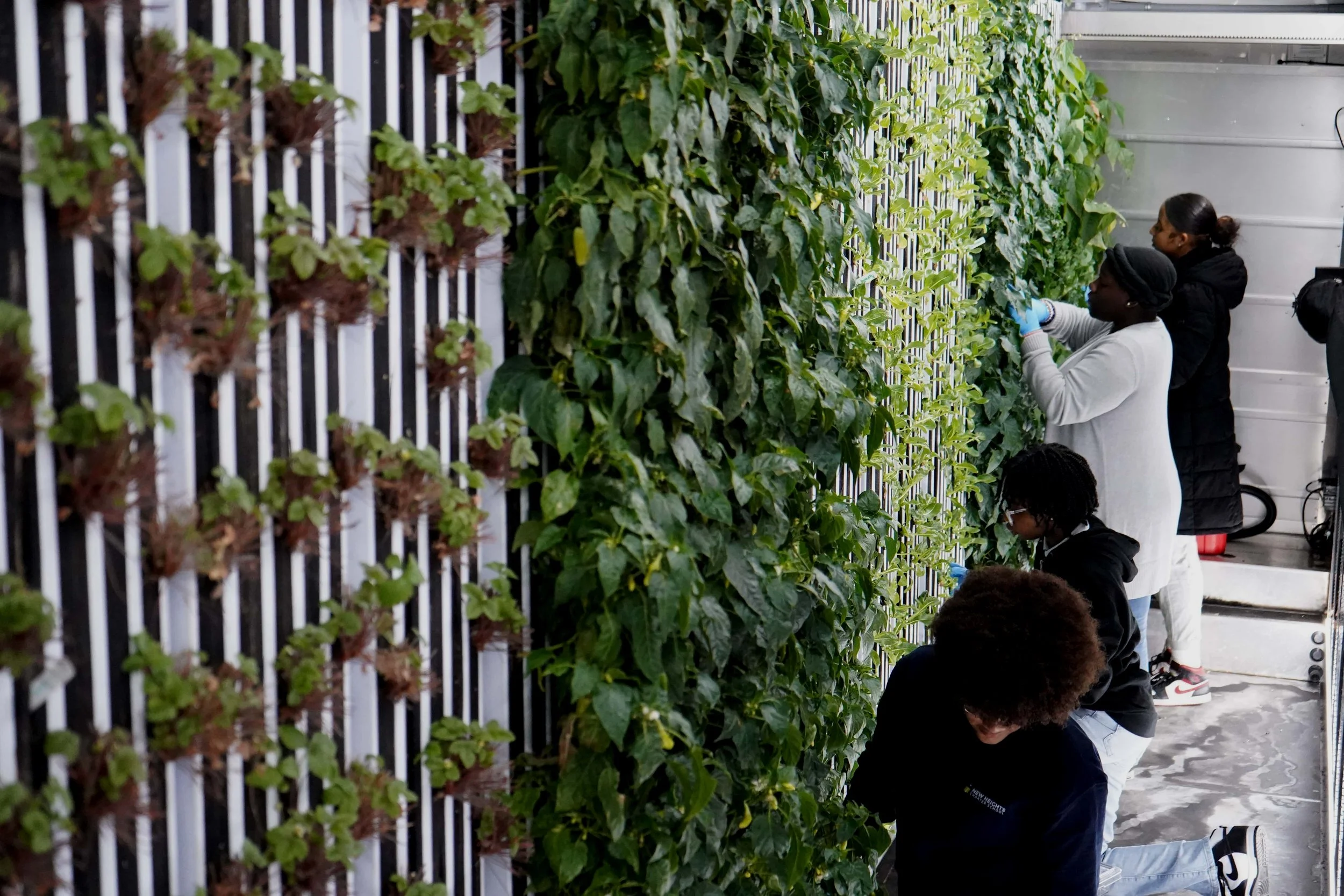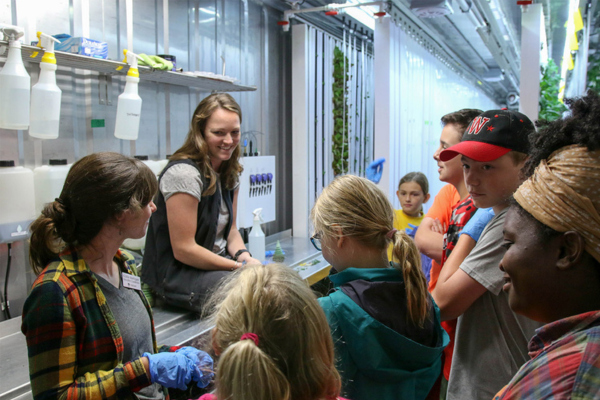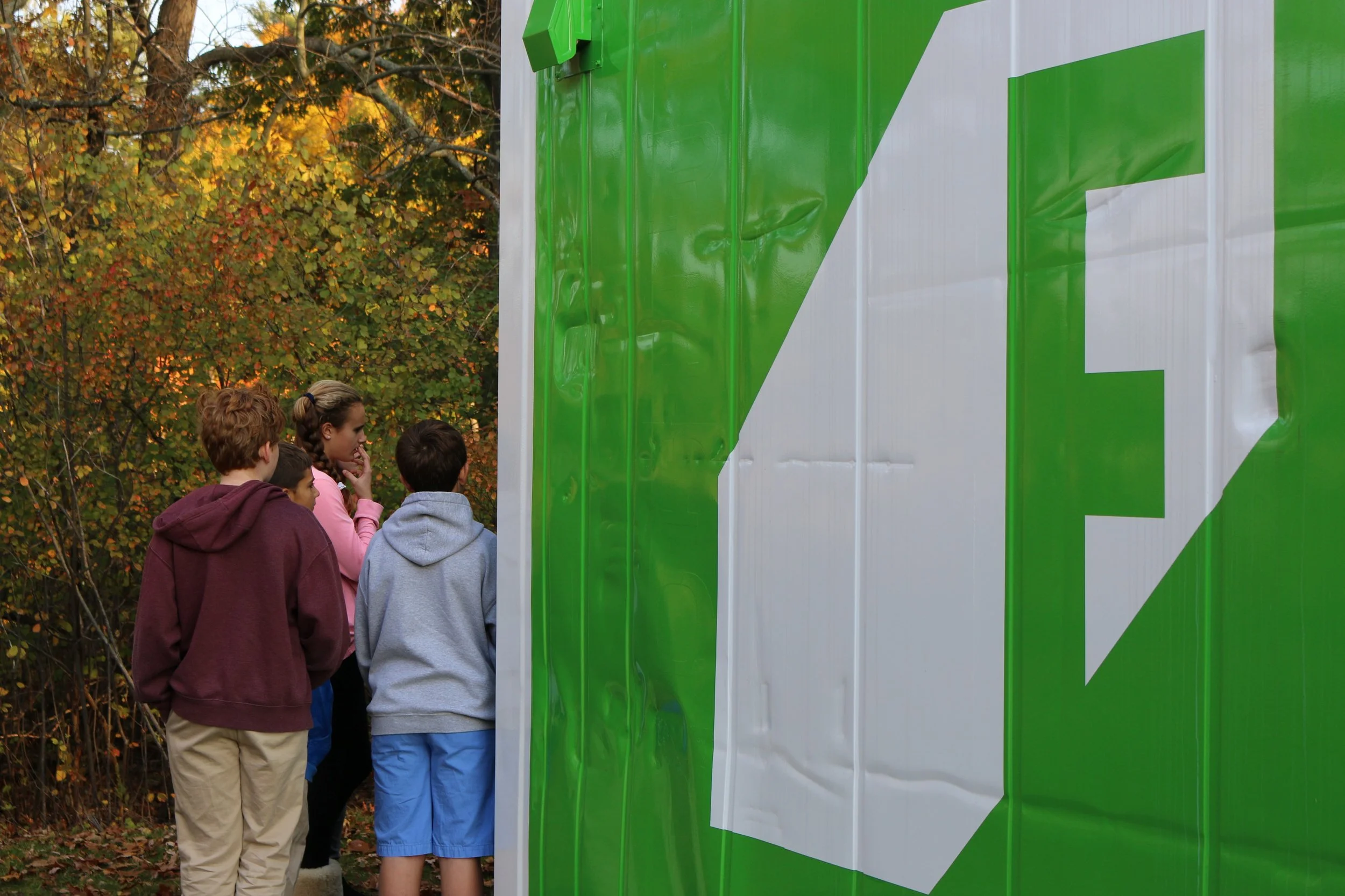Organizations
NEW here? Start with these…
-
-
-
-
Auburn University (Auburn, Alabama)
Lotus House (Miami, Florida)
Pillsbury United Communities (Minneapolis, Minnesota)
Discover 16 compelling reasons to start container farming today! From becoming your own boss and contributing to your community, to growing fresh, local produce year-round, container farming offers personal, financial, and environmental benefits.
Hospital-based farming is an innovative approach that integrates agricultural practices within healthcare settings to improve patient outcomes. Hospitals can enhance patient recovery, reduce food insecurity, and promote overall well-being by providing fresh, nutritious food directly from on-site farms.
Hydroponic container farms are transforming classrooms into dynamic environments for social emotional learning (SEL). Learn how these innovative tools cultivate essential life skills while growing fresh produce.
Discover how container farms are revolutionizing STEM education by providing hands-on learning in botany, physics, chemistry, and more. Prepare students for the future with innovative, sustainable farming systems.
Discover 16 compelling reasons to start container farming today! From becoming your own boss and contributing to your community, to growing fresh, local produce year-round, container farming offers personal, financial, and environmental benefits.
Hospital-based farming is an innovative approach that integrates agricultural practices within healthcare settings to improve patient outcomes. Hospitals can enhance patient recovery, reduce food insecurity, and promote overall well-being by providing fresh, nutritious food directly from on-site farms.
Schools across the country are finding innovative ways to make their Freight Farms more functional and educational for students. By customizing the interior and exterior, schools can turn these farms into engaging spaces for hands-on learning, science projects, and sustainability initiatives.
Whether looking to supply sustainable food, jumpstart modern agriculture curriculums, encourage student engagement, or simply grow the best greens around, universities around the country are relying on hydroponic container farms to create impactful farm to campus programs.
At Freight Farms, we work with campuses to integrate hydroponic produce into dining services and school curricula. Read on as we explore the ways a vertical farm can transform your campus.
We’re proud that so many schools use our hydroponic farming technology for their farm to school program. From California to Massachusetts, Freight Farms are put to work to achieve each of the pillars of farm to school: local food sourcing; student access to healthy food; and learning opportunities. In this blog, we explore each.
Freight Farms had the pleasure of exhibiting at three education-focused events, each providing a unique platform to connect with educational decision-makers. Our mission was to share the benefits of vertical farming, showcasing how a container farm can serve not just as a food source for the school and/or community, but as a dynamic classroom for various courses, research, and STEM opportunities.
One of the most promising advancements in campus dining is the incorporation of hydroponics. This method offers numerous benefits, including improved sustainability, enhanced food security, and fresher, more nutritious produce.
By integrating crops grown in container farms, universities can revolutionize their dining hall menus with fresh, local produce year-round.
One of the most promising advancements in campus dining is the incorporation of hydroponics. This method offers numerous benefits, including improved sustainability, enhanced food security, and fresher, more nutritious produce.
By integrating Freight Farms into the K-12 curriculum, schools can address multiple educational and environmental objectives, fostering a hands-on learning experience that aligns with modern educational standards.
Explore the benefits and challenges of small-scale farming and how container farms can help increase food security, promote sustainability, and boost local economies.
By introducing hydroponic container farms directly on-site, food banks can enhance their ability to provide fresh, nutritious, and culturally relevant produce year-round.
In this article, we examine the effectiveness of Freight Farms and traditional school gardens in K-12 settings and analyze their benefits, challenges, and impact on educational environments.
In this article, we explore how PTAs and Booster Clubs can successfully fund a Freight Farm, providing students with a cutting-edge learning tool that pushes the boundaries of traditional classroom education.
K-12 schools can effectively leverage community partnerships and corporate sponsorships to fund the purchase of a Freight Farm and enhance their educational offerings.
Through crowdfunding platforms, K-12 schools can secure the necessary funds to bring a Freight Farm to their students, providing invaluable educational experiences beyond traditional classroom settings.
It’s crucial to recognize the potential of hydroponics in classroom settings beyond just science experiments. Hydroponic farming allows students to explore a variety of academic paths, such as science, technology, nutrition, environmental studies, and much more.





















Discover how container farms are revolutionizing STEM education by providing hands-on learning in botany, physics, chemistry, and more. Prepare students for the future with innovative, sustainable farming systems.